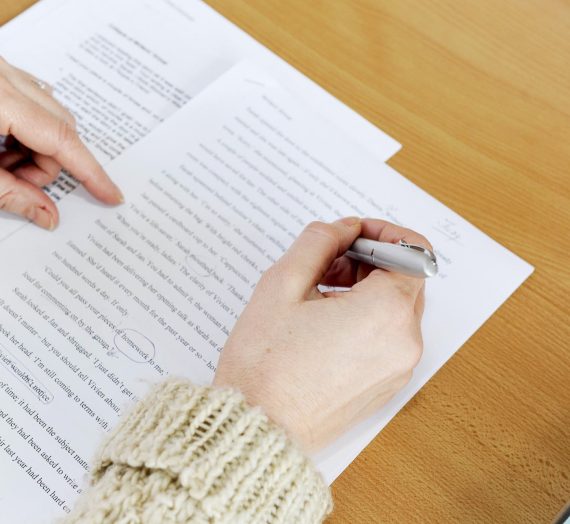As editors, we know the importance of editing—but do the people we edit for know its importance?
In writing, as in life, some mistakes are bigger than others. However, authors and readers alike have their own opinions about what is and what is not a major error in a text, and those opinions can often change in different situations. But what are those errors, and when do people’s judgments about them change? Every editor has worked with an author who felt like a suggested revision was unnecessary, or even damaging to their voice, and such misunderstandings and miscommunications can often lead to conflict. One way to help resolve such a conflict is to prove to the author (or to realize for ourselves) that even if an error does or doesn’t bother us, the majority of people might have a different opinion.
THE RESEARCH
One study, “Do Writing Errors Bother Professionals? An Analysis of the Most Bothersome Errors and How the Writer’s Ethos is Affected” by Carolyn Gubala (University of California, Davis), Kara Larson (University of South Florida), and Lisa Melonçon (University of South Florida), suggests that in the business world, the types of errors and their bothersomeness not only vary by the situation the error occurs in but impact significantly a reader’s opinion of the writers and their companies. Gubala et al.’s findings tell us that even if business professionals don’t always consider editors important for internal communications, they certainly understand their importance in company image and presentation.
For their study, Gubala et al. first created a survey containing six different questions, each including a sentence with a different type of common grammatical error—fragments, unnecessary quotation marks, word-ending errors, run-on sentences, misspellings, and wrong words. Each participant then rated the error on a scale from one to four, with one being “not at all bothersome,” two being “somewhat bothersome,” three being “definitely bothersome,” and four being “extremely bothersome.” At the end of the survey, the participants were then asked for their reactions to the errors they saw.
“An overwhelming 90% of participants in the 22–30 age group said that they have a different perception of writing errors for internal documents compared to external documents.”
—Carolyn Gubala (UC Davis), Kara Larson (University of South Florida), and Lisa Melonçon (University of South Florida).
Ultimately, Gubala et al. found that the business professionals surveyed had the highest average score for the wrong word and run-on sentence errors, with scores of 3.38 and 3.25 respectively. Unnecessary quotation marks had the lowest score at 2.62. Gubala et al. also found that female participants had a 0.27 higher average score than the male participants did, and that in the post-rating survey questions “an overwhelming 90% of participants in the 22–30 age group said that they have a different perception of writing errors for internal documents compared to external documents” (2020, 16). The participants were then asked to rate their reactions to all of the errors using the same 1–4 scale and assume that the errors were made by a member of their company. In the end, the participants were found to have a 3.10 mean result for “I am embarrassed for my company and want the employee’s writing skill deficit to be rectified,” and a 2.97 mean for “I tend to contextualize and react on a case-by-case basis.”
THE IMPLICATIONS
Gubala et al.’s results suggest that in a business setting grammatical errors not only bother readers but also cause them to negatively judge the capabilities of the document’s author, damaging the author’s credibility. Because of this it’s important to pay close attention to these errors while copyediting. While not every participant in the survey condemned the grammatical errors, enough were frustrated by them that it shows the value of having a copyeditor look over one’s work in businesses, especially when that work is going to be distributed to a public audience. Knowing which errors are the most bothersome to professionals also lets us as editors better communicate why it’s important to make the suggested changes, and helps to avoid unnecessary conflict with authors.
To discover more about what bothers business professionals, read the full article:
Gubala, Carolyn, Kara Larson, and Lisa Melonçon. 2020. “Do Writing Errors Bother Professionals? An Analysis of the Most Bothersome Errors and How the Writer’s Ethos Is Affected.” Journal of Business and Technical Communication 34 (3): 250–86. doi:10.1177/1050651920910205.
—Eliza Gutke, Editing Research
FEATURE IMAGE BY AYMANE JDIDI
Find More Research
Take a look at Larry Beason’s (2001) article to see the original study Gubala et al.’s was based on: Beason, Larry. 2001. “Ethos and Error: How Business People React to Errors.” College Composition and Communication 53 (1): 33. doi:10.2307/359061.
Or, read Editing Research’s summary of Larry Beason’s (2001) article: “Not Just a Typo: How Simple Errors Affect Image.”





Help in Self-Publishing - Editing Research
[…] Take a look at Eliza Gutke’s Editing Research article for more evidence about the importance of producing high-quality material: “Why Editors Matter.” […]
Think You Have the Same Expectations as Your Editor? Think Again! - Editing Research
[…] To learn more about why editors are so important, check out Eliza Gutke’s article on Editing Research: “Why Editors Matter.” […]